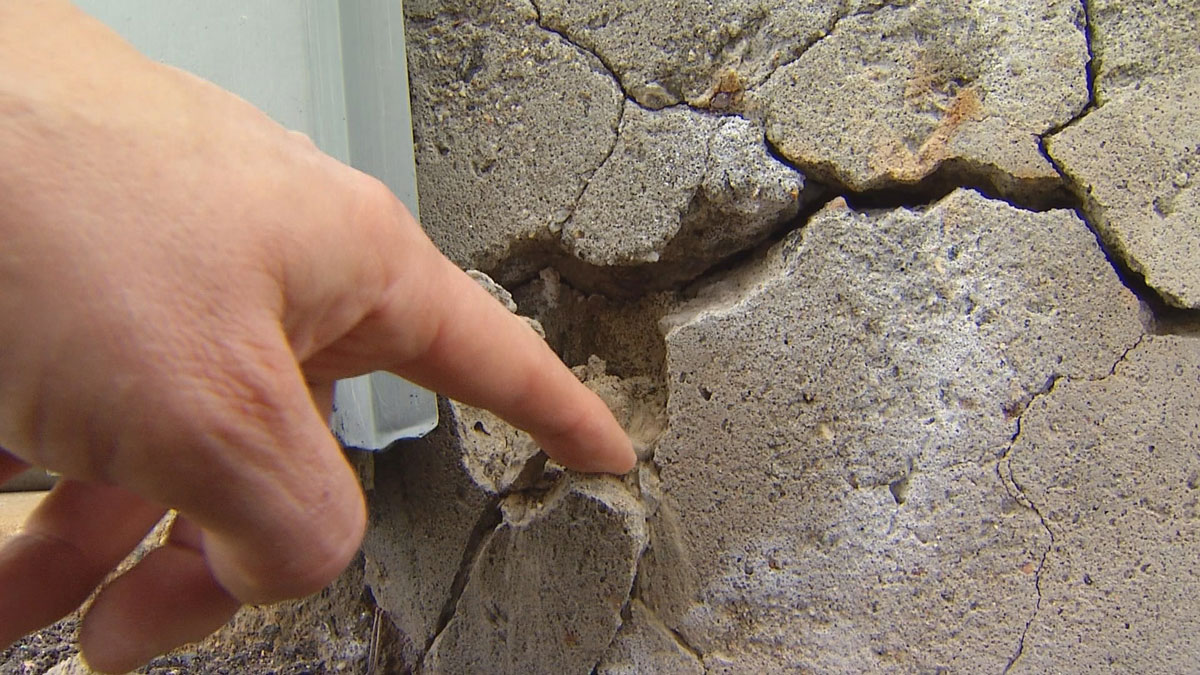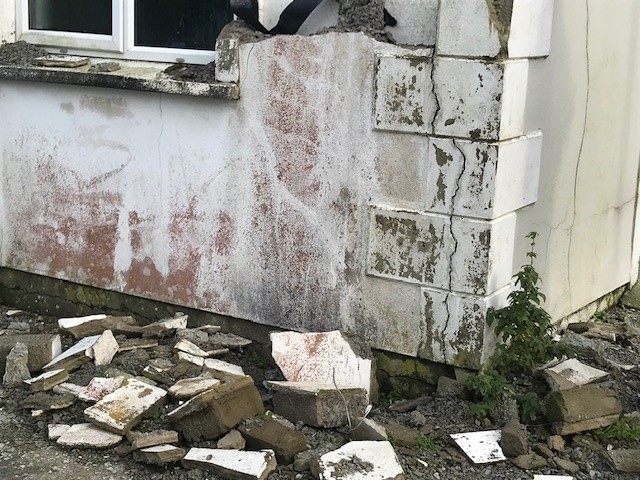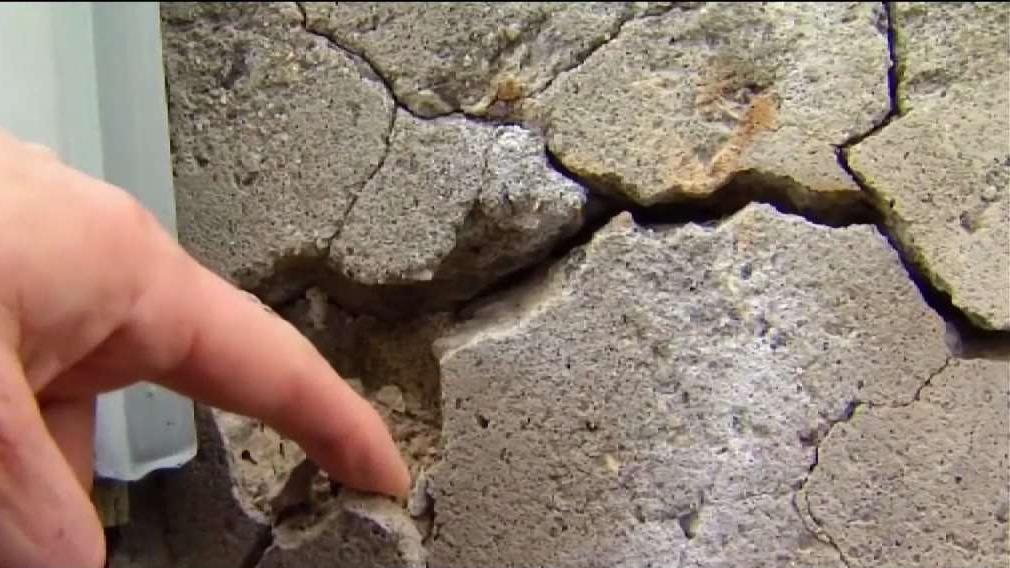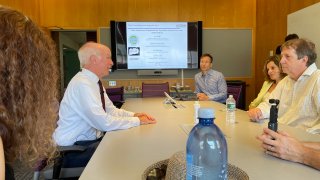
The discovery of hundreds of deteriorating basements and foundations in northeastern and north central Connecticut has changed lives, and galvanized state and federal leaders to help.
One of the Congress people who has led the charge visited the district with word of more assistance, and research aimed at solving this monumental problem.
A now defunct concrete company in the area made concrete that experts say had a naturally occurring mineral (pyrrhotite) that causes basement walls to crack and expand when exposed to air and water.
One of the only ways to repair the problem is to lift the home and replace the concrete - something that for a single-family house can approach and sometimes even exceed $200,000.
Get Connecticut local news, weather forecasts and entertainment stories to your inbox. Sign up for NBC Connecticut newsletters.
Most insurers have denied homeowners coverage - something upheld by the courts.
“The cost to us personally, has been physical, emotional and financial,” said homeowner Peggy Flavel of Tolland.
The good news? Congressman Joe Courtney, plus Congressman John Larson, and Senator Richard Blumenthal are shepherding a bipartisan bill through Washington that will restore rules that allow people to deduct costs associated with this problem from their income taxes.
“It means that any uninsured, unreimbursed losses can basically be paid for through the IRS code by allowing people deduct those losses on a multi-year basis,” Courtney said.
Things like new driveways, sidewalks, decks, landscaping, doors, windows and more that cost Dan Sullivan tens of thousands of dollars out of pocket.
“Since moving back into the home, we’ve had to replace doors that worked, repair walls that cracked, and we had drainage issues in the yard that we never had before. We also had to address an issue with mold," Sullivan said.
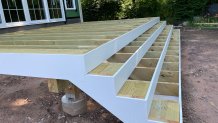
Then it was onto the UConn engineering school, where Courtney learned about the latest research efforts, for which he and Larson have secured another $750,000 in federal funding.
The scientists told Courtney they are finding that just because a basement has the mineral that causes basements to crack doesn’t always mean it is certain it will fail.
“In some instances with more precise testing equipment, you know, which can really identify where the hotspots are in a foundation, you are really in a better place to decide if you need the lift clean and replace version," Courtney said.
The UConn team also briefed the congressman on newer techniques they are using to test the concrete for its potential to fail. One way is running an electric current through core samples.
The scientists also told Courtney that someday, there could be a chemical treatment to stop the cracking and expansion, or possibly a way to extract the moisture out of concrete to prevent the issue from getting worse.
Courtney’s team outlined some of the funding he has been able to secure:
- Courtney secured $750,000 for NIST (National Institute of Standards and Technology) to complete research. The FY2023 government spending package also directed NIST to investigate mitigation strategies for concrete structures that may not yet have developed cracking but contain pyrrhotite.
- In addition to the $750,000 that Courtney secured for NIST to complete this research, he also secured $4 million in Community Project Funding directly to UConn for them to complete their pyrrhotite research.
- IN TOTAL: Courtney has secured $10.25 million for pyrrhotite research to be conducted both at UConn and at NIST.
- Once UConn receives its Community Project funds, it will have received approximately $7 million in total for pyrrhotite research.
One of the biggest messages UConn wants to get out is that the concrete testing lab at the engineering school wants to test more concrete.
If you have a home in Connecticut, or Massachusetts, and you think you have this crumbling basement problem, you can get it tested at UConn, for free. Here’s the application.

